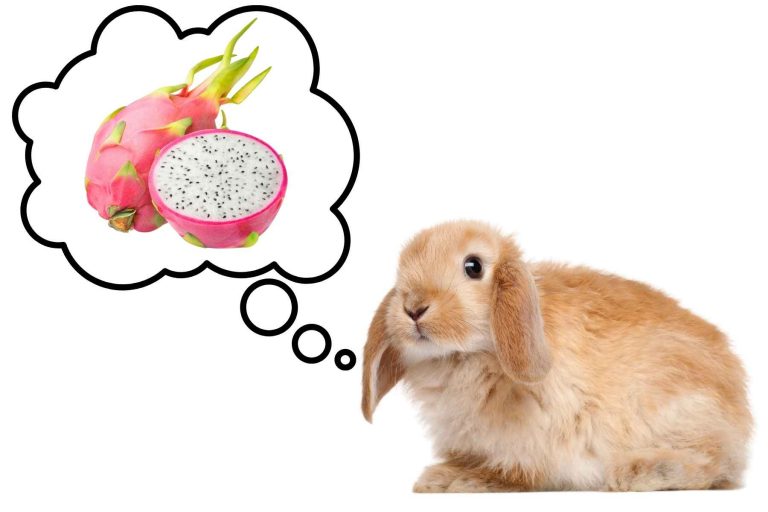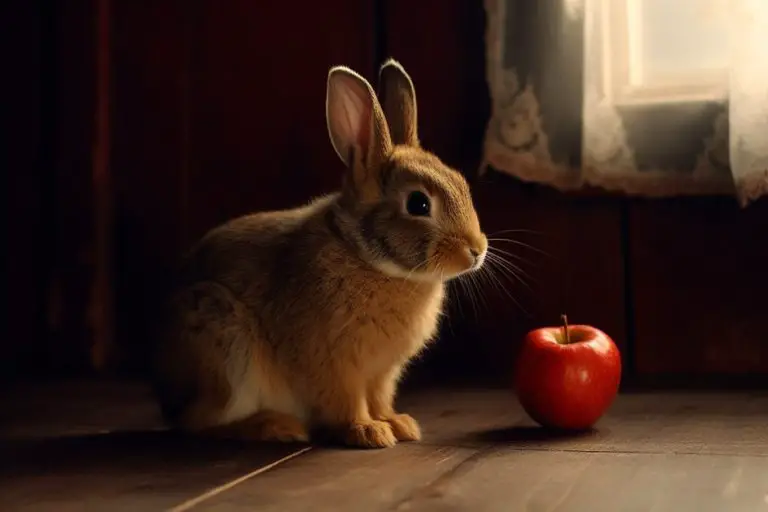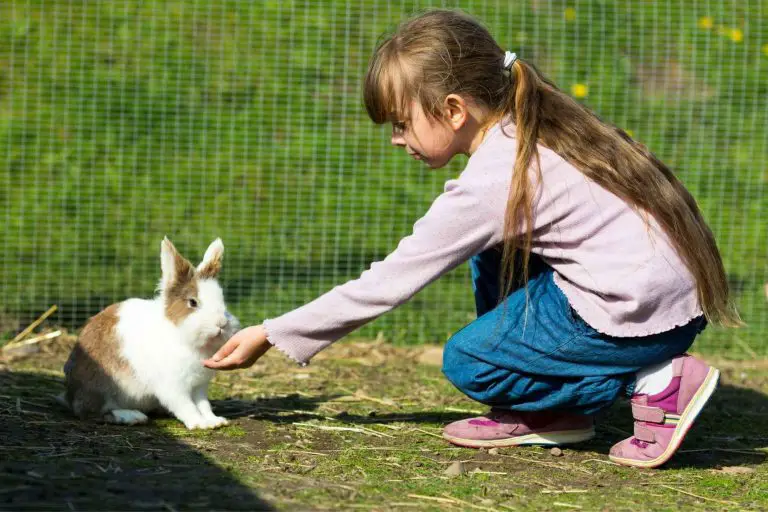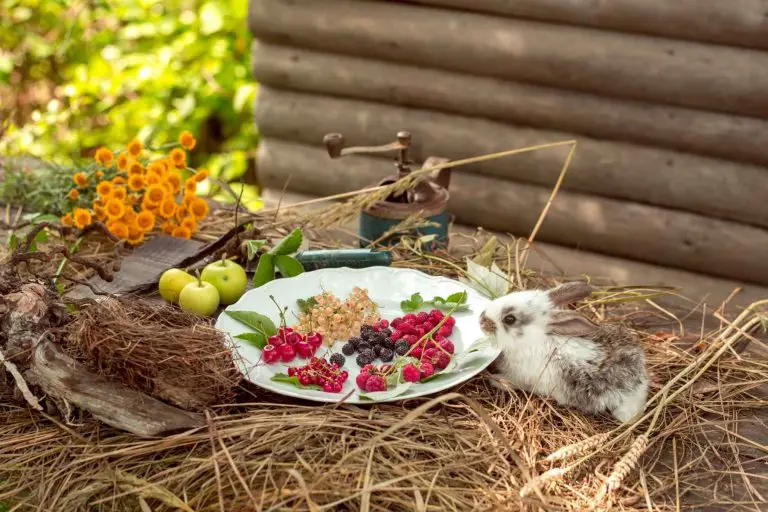Can Rabbits Eat Watermelon?
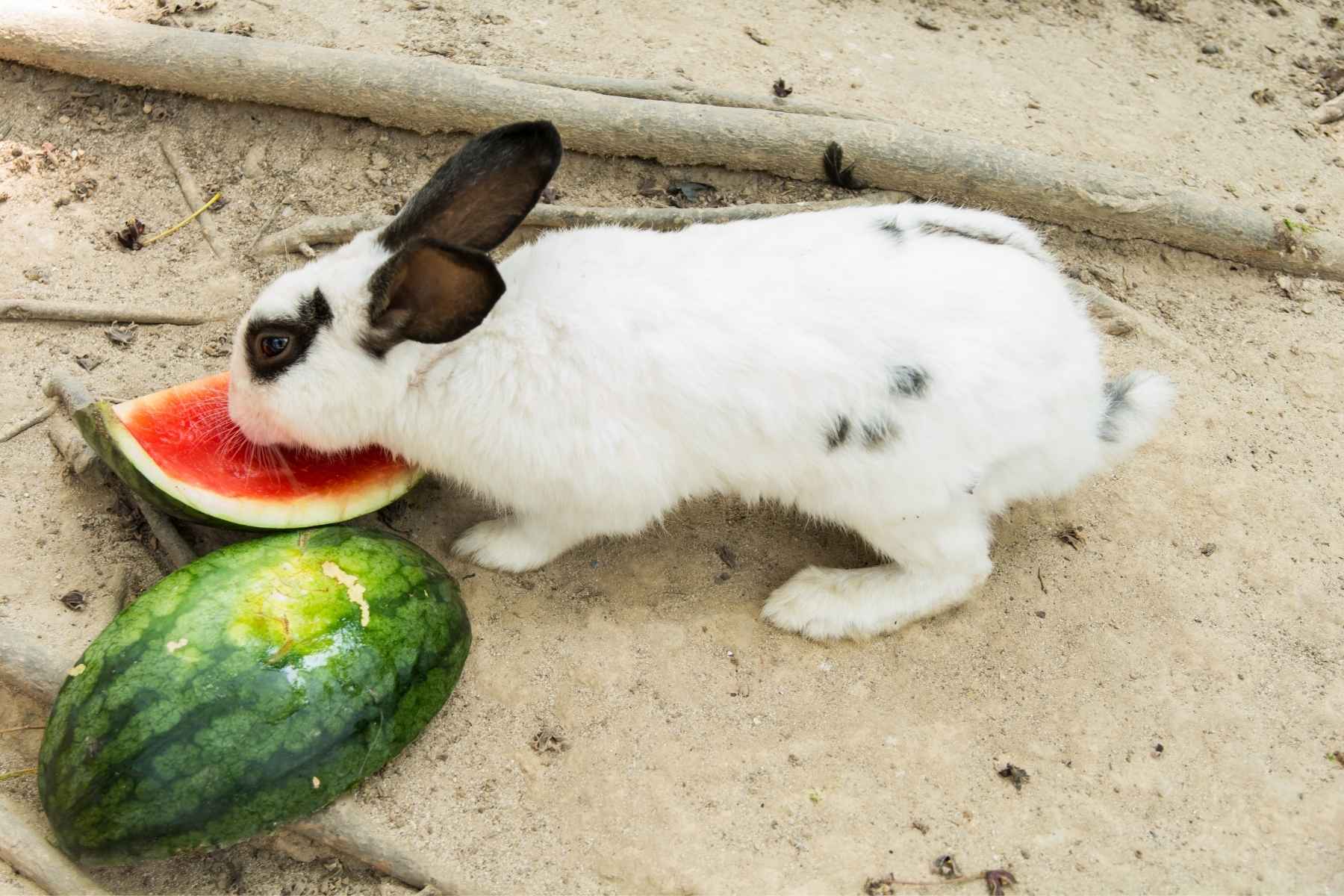
On a hot summer’s day, the refreshing taste of watermelon is second to none. This refreshing fruit provides us with hydration while satisfying our sweet afternoon cravings. But can you say the same for your rabbit?
Yes, rabbits can eat watermelon, and most will love this special treat to satisfy their sweet tooth. The rind, in particular, is nutrient and fiber dense, providing an array of health benefits to your bunny. However, watermelon is not the most nutrient-rich food for a bunny, so it’s best if you save it as a treat rather than an everyday foodstuff.
Continue reading to find out the nutritional content of watermelon and whether or not this is a good addition to your bunny’s diet. Discover the healthiest parts of the watermelon, plus the best way to serve this treat to your fluffy companion.
What’s In A Watermelon?
Watermelon contains more than 90% water. It has an 89% carbohydrate content, 7% protein content, and 4% fat content.
A 100g piece of watermelon contains around 6.2g of sugar and roughly 1g of salt. Meanwhile, there is very little nutritional content, such as vitamins or minerals to speak of.
What Are The Health Benefits Of Watermelon For A Rabbit?
There aren’t a lot of health benefits for your rabbit when it comes to eating watermelon. The low nutrition content and high sugar percentage mean it is a treat best served occasionally rather than frequently.
But, unlike humans, rabbits can eat the rind of a watermelon, which is a valuable source of dietary fiber that is hard to get in other rabbit treats. Plus, this healthy skin contains a mixture of vitamins that help to keep your bunny healthy and aid in digestive processes.
The other benefit of feeding your rabbit watermelon lies in its high water concentration. Offering them a sweet treat can be an excellent way to get more fluids into your rabbit’s diet and keep them hydrated (especially during the hot, dry days of summer).
What Are The Health Drawbacks Of Watermelon For A Rabbit?
There are a plethora of natural sugars in watermelon that the human body can break down. However, the same is not true for rabbits.
While a small number of their sugars can pass through in a rabbit’s feces, too much can cause problems with their digestive tract. This can result in gas, diarrhea, or a loss of appetite in your bunny.
You also want to avoid making sugary treats a habit for your bunny as you may find they may start to turn their nose up at the hay and other food sources, which should comprise the majority of their diet to maintain optimum health.
What Is The Best Way To Feed Watermelon To My Rabbit?
If you’re feeding your rabbit watermelon for the first time, make sure you start with a small portion to see how they react. If their feces present as a normal color and texture, you can rule out the possibility of intolerance.
In addition, keep your servings moderate and don’t exceed two servings of watermelon per week. Cut the watermelon into small cubes so that it’s easier for them to eat, and remember that bath times can be traumatic for a bunny rabbit. Hence, it’s better if they don’t cover themselves in sticky watermelon juice.
Keep watermelon and other sweet fruits to less than 10% of your rabbit’s total diet to maintain a good level of physical health. Rabbits can develop a sweet tooth, just like humans, so don’t make sugary treats the norm.
Many owners don’t realize that improper nutrition is the leading cause of death in rabbits. Understanding what and how to feed your rabbit is vital in extending their lifespan.
What Is The Best Type Of Watermelon To Feed My Rabbit?
Organic watermelons are the best for rabbits because they don’t contain any waxes or pesticides, which means that you can also feed the rind to your rabbit, making use of the healthy fiber content.
Ensure that you remove all seeds because their mild toxicity can lead to digestive issues in your bunny. Source a seed-free watermelon or take the time to remove them before serving.
The best watermelon for your rabbit is a moderate portion of seedless, organic watermelon.
Use this food as an occasional treat and never use it as a meal replacement. Check all the facts beforehand to ensure you maintain a well-balanced diet for your bunny rabbit.
How To Feed Watermelon To A Rabbit?
The nutrition of a watermelon reaches its peak once it is ripe. To pick out a ripe watermelon, look for one that is smooth in texture with no lumps and bumps. A ripe watermelon should have a yellow portion at the bottom. If it presents with a green or white patch, you’ll know that it has not yet reached maturity.
Wash the watermelon rind thoroughly and remove any seeds from the flesh. Then, cut the watermelon into sections that are no bigger than 2 x 2 inches. Smaller pieces are better for your bunny as they are easier to eat and less likely to cause a mess.
Can My Rabbit Eat Watermelon Rind And Watermelon Seeds?
Rabbits can eat watermelon rind, which provides an array of health benefits. While the pink flesh contains very little nutritional value, the rind contains reasonably significant amounts of Vitamins A, B6, and C.
Vitamin C is excellent for fighting off diseases in your rabbit, which helps to prevent premature death. And this concentration of vitamins both boosts and strengthens their immune systems. Consuming this cocktail of vitamins may increase your rabbit’s health to be better than it was before.
In addition, the rind contains fiber and zinc, which help ease the digestive process preventing any issues such as cramps, constipation, or diarrhea. Potassium keeps the kidneys healthy and prevents stones, while iron regulates a healthy blood flow.
Your rabbit should not eat the seeds of a watermelon. Not only do they contain low amounts of toxins that can build up in your rabbit’s system, but they also present a choking hazard, particularly the black ones, which have a hard texture and can easily wedge themselves in your bunny’s throat.
If this happens, it can lead to choking or problems with the intestinal tract. When this happens, it may prevent your bunny from properly excreting the waste products from its body.
However, your rabbit can eat the leaves of a watermelon, and you’ll often see bunnies munching away on these luscious green treats anywhere where watermelons are grown.
How Much Watermelon Can My Rabbit Eat?
Thanks to its high water content, your rabbit can eat a reasonably significant amount of watermelon without overdoing it on the sugar consumption as long as you only feed it to them as an occasional treat.
Three to four one-inch cubes should be sufficient for small bunnies, while larger rabbits can consume up to ½ cup.
When it comes to fruit, your rabbit should only consume 1-2 tablespoons for every five pounds of body weight they possess. This is an excellent gauge to check that you aren’t feeding them sweet treats in excess.
What Happens If My Rabbit Eats Too Much Watermelon?
Too much watermelon can have a laxative effect on a rabbit, so you need to ensure that their digestive tract fully functions before you feed them this sweet treat. In addition, there are other health implications from feeding your rabbit too much watermelon.
There is some calcium present in the watermelon. While this is a critical mineral for your rabbit to help strengthen teeth and bones, too much of it can have a detrimental impact on the health of your fluffy friend.
Excessive amounts of calcium can lead to urinary issues such as kidney and bladder stones. So feeding a bit of watermelon and its rind to your bunny is a nice treat, but feeding them too much could cause excessive consumption of specific vitamins and minerals.
In addition, you need to wash a watermelon thoroughly before you present it to your rabbit. Unwashed watermelons can contain traces of insecticides and pesticides, particularly in the rind, which your rabbit may consume if you are not thorough in your preparation.
Can Baby Rabbits Eat Watermelon?
Just like the young of many other living creatures, a young bunny rabbit is still developing, and its stomach and digestive systems are far more fragile than that of an adult. For this reason, it is best not to feed watermelon to a baby rabbit as they are likely to form digestive issues as a side effect.
Final Thoughts
On a hot summer’s day, your rabbit will love to munch away on a refreshing slice of watermelon. The best part is that they can get added hydration and a little nutrition boost from this popular food (as long as you feed them some of the rinds too!)
Just remember that fruit should not account for any more than 10% of your rabbit’s diet, and eating anything in excess can lead to issues in the digestive system. Keep watermelon as a treat, not an everyday occurrence, and your bunny will love this refreshing experience as it munches on a slice of fleshly watermelon.


